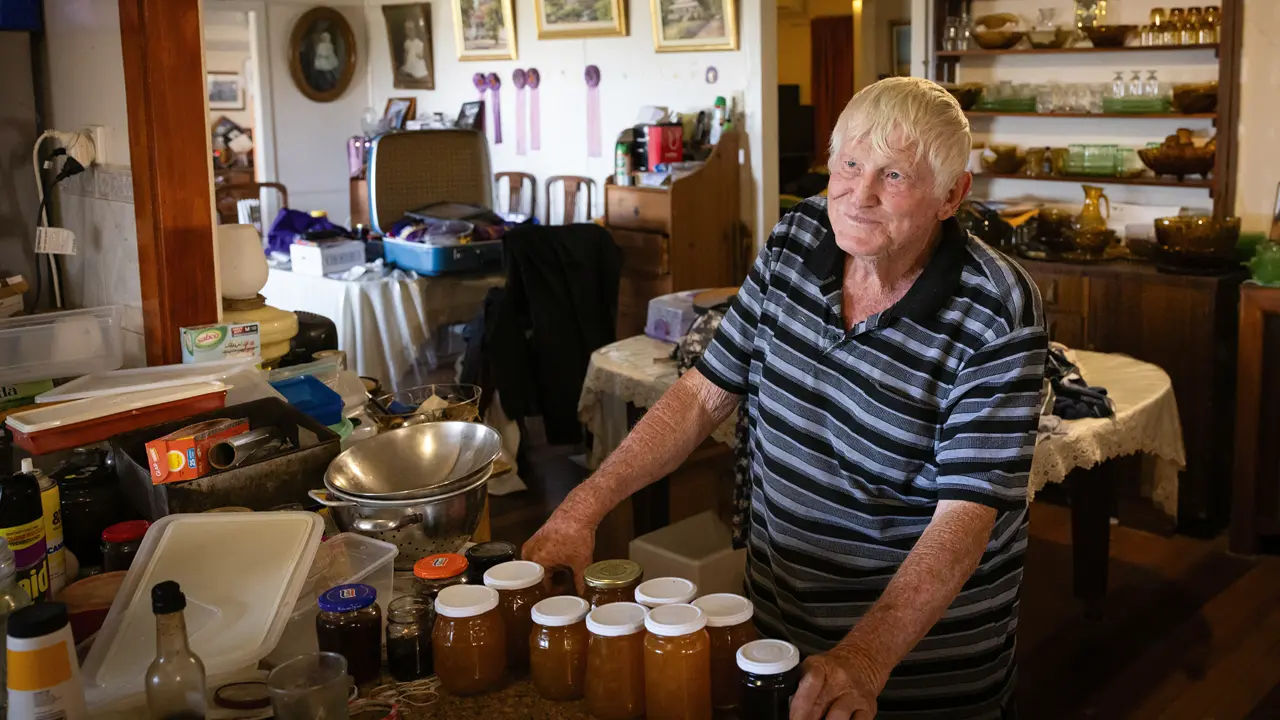In remote communities, the voice on the radio takes on special importance as a way of receiving information and staying connected.
Story By Dan Macdonald
If it has rained overnight in the West Australian mining town of Newman, radio broadcaster Andrew Collins is quick to find out. Sitting in Karratha’s ABC bureau, he receives an early morning rain report from miner, camel hunter and long-time listener, Gary Cornell. Andrew presents his 6am breakfast show to one of the most sparsely populated regions in Australia. His voice travels to the Northern Territory border in the east and can be heard 1000 kilometres to the south.
A Perth boy, Andrew has been a journeyman of sorts. He has worked in some of Australia’s most remote spots: Broken Hill, NSW; the Kimberley, WA; and now Karratha. Every morning over breakfast, his listeners savour his larrikin-style ability to tell quirky stories, an ability he displayed as an amateur documentary maker for the ABC television series Race Around Oz.
Andrew gets out of bed at 4am every day and is constantly on the lookout for interesting yarns about locals. He recently told the tale of a mute man from Wollongong, NSW, who sailed past Karratha on his way around Australia; then there’s the story about the gold prospector digging for fortunes in nearby Marble Bar. “Or there’s Gary Cornell from Newman who rings me up whenever there’s rain in his gauge and then we’ll chat about how many feral camels he’s got recently,” Andrew says. “He’s got a great, gruff voice. A real local. And Kev from Marble Bar, who has local history pouring out of his heart. My favourite listeners are the ones who phone up randomly for a chat.”
For 20 years Gary has tuned his radio in to the ABC and speaks of Andrew and his on-air colleagues with the familiarity of family. “The rain’s recorded out at the airport, 20 kays away,” Gary says. “It could be raining here and not out there so I’ve kept a record of it from my place. I just ring up and give a rain report.”
Listening to the wireless in Andrew’s backyard of mine sites, tiny townships, outback stations and small outposts is part of the fabric of living in remote Australia. “If it was taken away? Don’t mention it,” Andrew says. “It is important for a lot of the old-timers, those rusted on to the ABC. It’s an everyday event. Best-mate companion. It’s hugely important for them. A lot of listeners, they don’t have a choice. On remote stations and mine sites, they’ve only got one station on the dial and they tune in. It’s trustworthiness. I make a huge effort to include all the little places. In the grand scheme of things, their stories mightn’t seem important, but to them they’re massively important.”
This story excerpt is from Issue #77
Outback Magazine: June/July 2011









